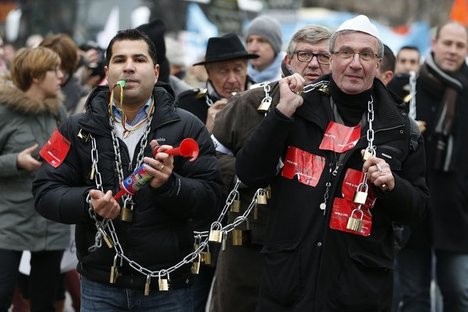(p. A9) France has stagnated for years under chronically elevated unemployment and slow growth. The country’s strong worker protections and expensive benefits have been blamed by some for being at least partly at the root of the problem.
. . .
Mr. Macron’s chan ges make it easier to hire and fire workers and allow some workplace issues to be negotiated directly at the company level, rather than through industrywide agreements, in hopes of stimulating both growth and job creation. The government focused especially on smaller businesses with fewer than 50 employees — the majority of French businesses — which have complained bitterly about excessive red tape and regulations.
. . .
“We are entering into an economy built on innovation, skills, digitalization,” said Mr. Macron in an interview Thursday with the weekly newsmagazine Le Point.
“To succeed in this world we need an economy that is much more flexible, much faster moving.”
Employees will no longer have jobs that last for a lifetime, but periods of unemployment are more likely to be temporary and go in hand-in-hand with more frequent job changes and retraining, he said.
Among the changes in the decrees published Thursday is license for employers to directly negotiate with their workers over certain workplace issues rather than having to follow industrywide agreements. That will allow a car parts factory in one region to have a different agreement with its workers than a similar company elsewhere.
Small companies especially are being given more leeway to bargain directly with workers or their representatives, without the mediation of unions.
For the full story, see:
ALISSA J. RUBIN. “Economy Idle, France Relaxes Its Labor Law.” The New York Times (Fri., SEPT. 1, 2017): A1 & A9.
(Note: ellipses added.)
(Note: the online version of the story has the date AUG. 31, 2017, and has the title “France Unveils Contentious Labor Overhaul in Big Test for Macron.”)


